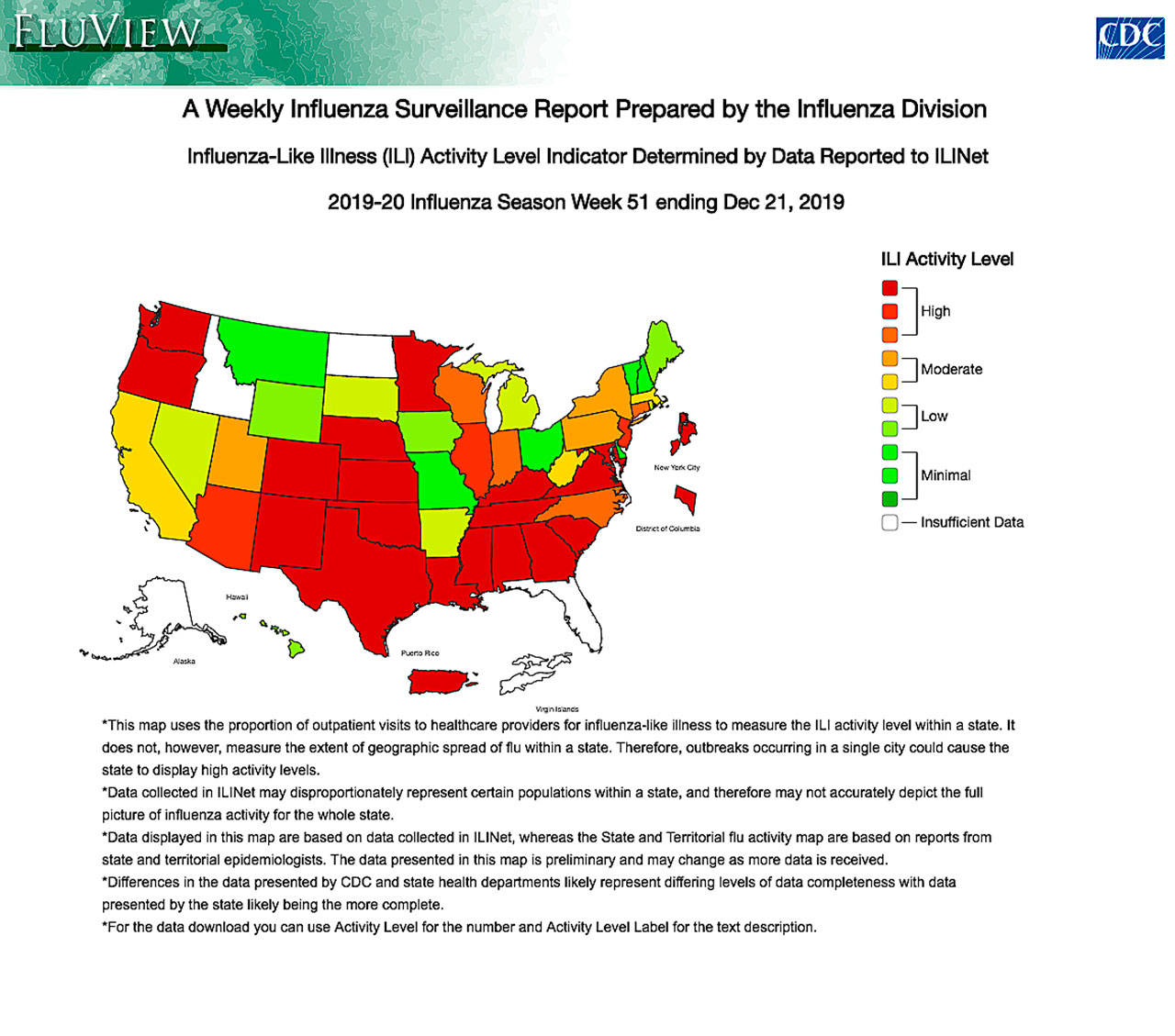A King County child died due to complications from the flu earlier this month.
It was the first known case of a pediatric flu-related death in the county since 2009, public-health officials said.
The child was previously healthy and died on Dec. 15 in a Pierce County hospital. There have also been three reported flu-related adult deaths in King County to date in the 2019/2020 flu season, public-health officials said.
“Losing a child to influenza is heartbreaking and I want to extend our deep sympathy to the family,” said Dr. Jeff Duchin, health officer for Public Health – Seattle & King County, at a news conference. “This death is a tragic reminder of how serious influenza can be — especially in this season, we’re seeing a virus impacting children particularly hard.”
Influenza B virus is the predominant strain circulating now, which is unusual for this time of year according to the Center for Disease Control (CDC). The strain is particularly dangerous for young children.
The influenza B strain typically comes later in the flu season and tends to cause more severe illnesses in children relative to adults, Duchin said.
“What’s happening now is that we haven’t seen this particular strain of Influenza B in many years,” Duchin said. “Because of that, there’s probably not a lot of immunity in the population to this virus so far. So, it’s likely going to cause many illnesses and many serious infections.”
Duchin declined to say whether the child who died had been vaccinated. However, he said each year, 80 to 90 percent of children who die from the flu were not vaccinated. The CDC estimates that so far this season there have been at least 4.6 million flu illnesses, 39,000 hospitalizations and 2,100 deaths from flu. A total of 22 influenza-associated pediatric deaths occurred during the 2019-2020 season.
Sixteen deaths were associated with influenza B viruses and six deaths were associated with influenza A viruses.
Local hospitals, like Snoqualmie Valley Hospital, are seeing a rise in patients with flu-like symptoms, though only about 10 percent tested positive for influenza.
People who get the flu can be contagious a day before symptoms develop and up to a week after becoming sick, according to Public Health. Symptoms include fever, cough, weakness and body aches.
“Unlike a regular cold, the flu comes on suddenly,” said Dr. Alan Johnson, Snoqualmie Ridge Medical Clinic physician. “If you think you have the flu, see your doctor right away. It is treatable for the first two or three days only. If you wait, the virus goes through your system and it can take up to three weeks to recover.”



